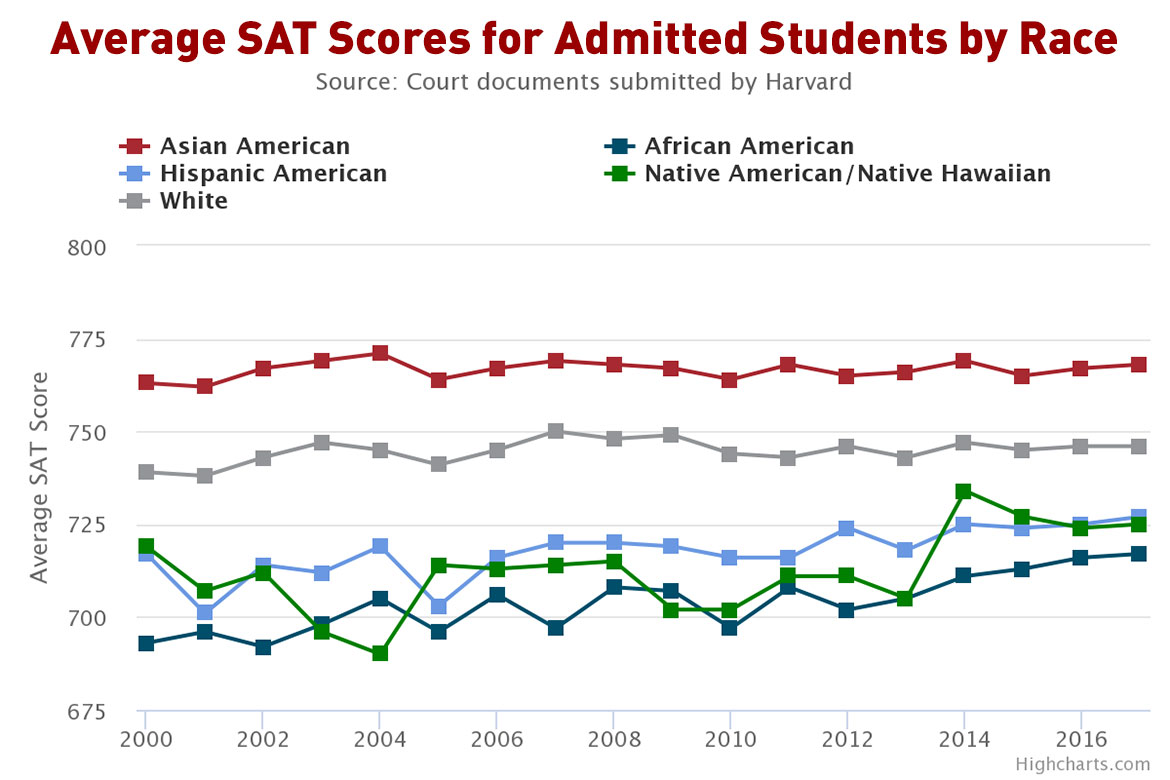Has anyone mentioned that the reason we need more Black doctors is because there is lots of data that shows that it's common for Black people to be treated unfairly by a good percentage of white doctors?
How common is it really? And how much is unfair perception vs. reality. It is black patients who can be biased, not just white doctors. In any case, it is unjust to discriminate against white prospective med students because of some other white people might have done.
Also, why do you persist in the racist practice of capitalizing "black" but not "white". Either both should be capitalized, or neither should.
But, even if the grades and MCAT scores are in some cases a little bit lower,
Significantly lower.
there is a need for more Black doctors, especially in a state like Ga., where over 30% of the population is Black.
I reject this idea that black patients should be seen by black doctors. Would you extend that to white doctors and white patients etc., or it is a one-way street, like most discourse about race?
And I do not think lowering academic standards for black med students is the way to go here. If you want more black doctors, start in grade schools. Reduce the achievement gap by actually lifting performance of black students instead of having lower standards for them. That would also require a change in culture. There is a lot of sense of entitlement, that "white America" owes black people special treatment.
Grades and MCAT scores don't determine if someone will be a great physician, regardless of ethnic background.
They do determine that to a great degree. Not alone, of course, but they are significant metrics.
And they are more objective (esp. MCAT which is not plagued by inconsistent course difficulty and grading among different colleges) and are harder to game than essays or extracurricular activities. They are therefore areas that students from less well off families can control more. Access to extracurriculars are often based on connections. Rich families can just pay a ghostwriter to write the personal statement and secondary essays for the students. But nobody can take the MCAT for him and her. Rich and poor, white or black or otherwise, they all have to sit their ass for eight hours in the test center and take the same test. That makes it a much fairer metric than others.
Compassion and keeping up to date with one's area of practice are far more important and sadly, there are too many providers who lack compassion and don't seem to keep up to date with the newest things in medicine. It's complicated.
It's hard to predict the former, and I see no reason to assume that compassion differs by race. As far as the latter, I would think that more academically minded people enjoy learning new things and that they therefore would be more inclined to keep up with developments in their field, and maybe even contribute to them.
NPR said:
In South Florida, when people want to find a doctor who's Black, they often end up contacting Adrienne Hibbert through her online website,
Black Doctors of South Florida.
Anybody else find that kind of separatism concerning?
Hibbert says she got the idea for the website after she gave birth to her son 15 years ago. Her obstetrician at the time was white, and the suburban hospital outside Miami didn't feel welcoming to her as a Black woman pregnant with her first child.
"Did not feel welcoming". But was that because of anything the white doctor said or did or because of Hibbert's own prejudices?
"They had no singular photos of a Black woman and her Black child," Hibbert says. "I want someone who understands my background. I want someone who understands the foods that I eat. I want someone who understands my upbringing and things that my grandma used to tell me."
It seems to be the latter - it is Hibbert's prejudices, not the doctors that were making her uncomfortable.
I've also read that a good number of Black men don't like going to the doctor unless they can find a Black doctor because of racial discrimination.
Yes, but racial discrimination by whom? It seems these patients are discriminating on the basis of race, not the doctors.


